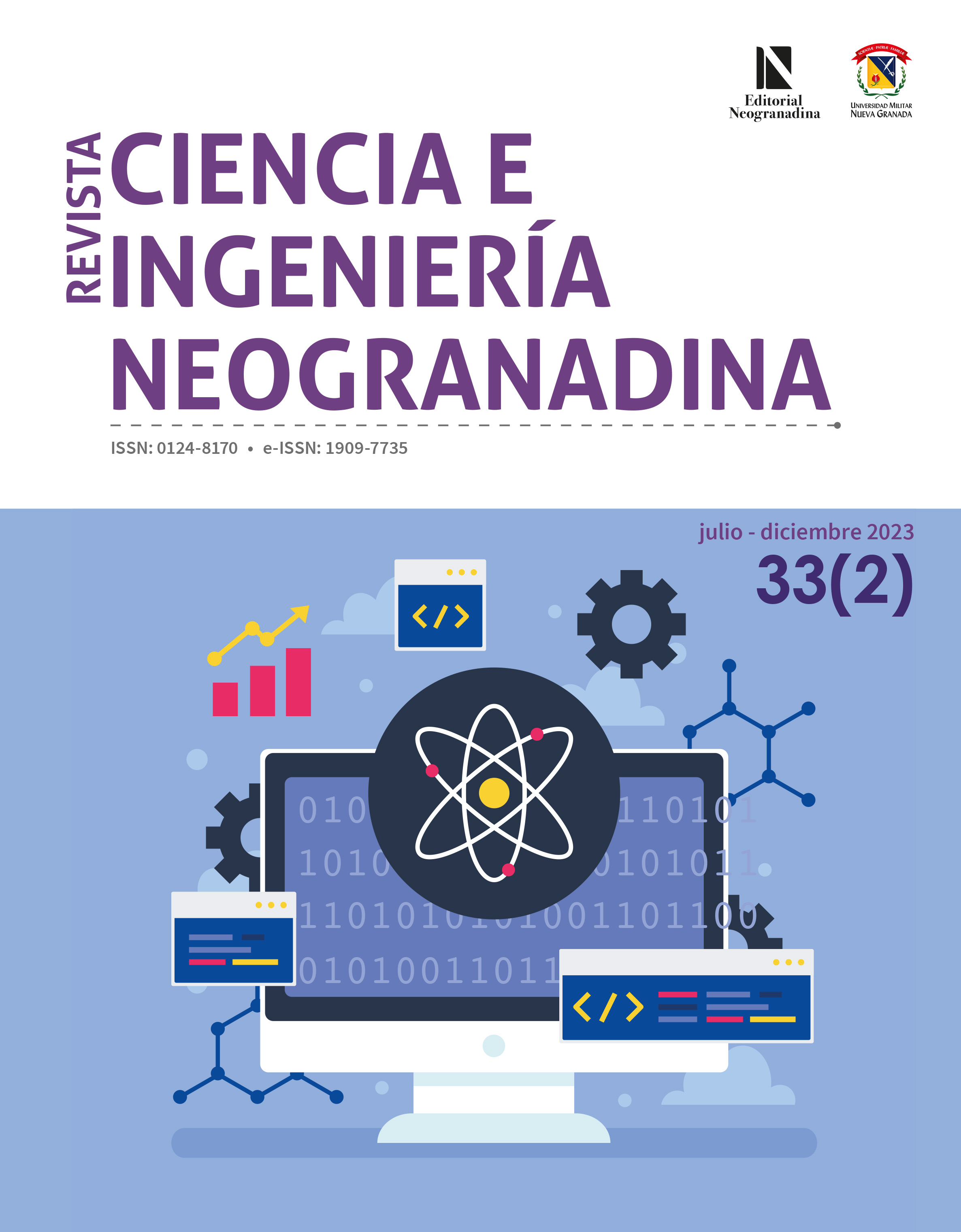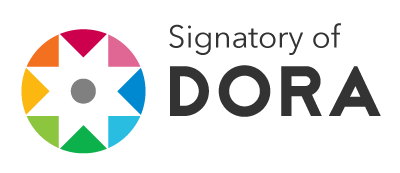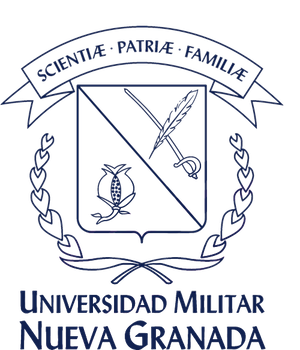Influencia de la meticulosidad en la adecuación funcional y mantenibilidad de sistemas orientados a objetos
Resumen
Una cantidad importante de estudios ha evidenciado que la personalidad influye de manera positiva en el ámbito de la ingeniería de software. Sin embargo, solo unos pocos estudios empíricos han analizado la influencia de la personalidad en los atributos de calidad del software. El objetivo de este trabajo es evaluar los efectos que tiene la formación de grupos homogéneos bajo la dimensión de la meticulosidad, con respecto a la mantenibilidad en sistemas orientados a objetos y la adecuación funcional del producto software. Se contó con un total de 76 participantes, y se empleó una herramienta computacional basada en un mecanismo de algoritmo genético, considerando la personalidad de los estudiantes como criterio de agrupación. Como resultado, se evidenció que no existe una diferencia significativa que permita afirmar que la formación de grupos homogéneos haya obtenido mejores resultados con respecto a las métricas Chidamber & Kemerer (CK) y a la adecuación funcional. A pesar de estos resultados, las puntuaciones promedio de las métricas Coupling Between Objects (CBO) y Response for a Class (RFC) en el grupo experimental estuvieron ligeramente por encima del umbral deseado y ligeramente por debajo del promedio del grupo de control. Esto indica que la meticulosidad en la formación de grupos podría afectar la complejidad del diseño, la modularidad, la propensión a fallas y la facilidad de realizar pruebas en las clases. Se sugiere seguir explorando qué dimensiones específicas de la personalidad pueden influir en los diferentes atributos de calidad del software y en general de la ciencia de la computación.
Descargas
Referencias bibliográficas
L. Machuca-Villegas, G. P. Gasca-Hurtado, S. M. Puente, and L. M. R. Tamayo, "Perceptions of the human and social factors that influence the productivity of software development teams in Colombia: A statistical analysis", J. Syst. Softw., vol. 192, 2022, https://doi.org/10.1016/j.jss.2022.111408
L. Li, J. Cao, and D. Lo, "Sentiment analysis over collaborative relationships in open source software projects", Proceedings of the International Conference on Software Engineering and Knowledge Engineering, SEKE, 2020, vol. PartF16244, pp. 418-423, https://doi.org/10.18293/SEKE2020-030
M. Sánchez-Gordón, Connecting the dots between human factors and software engineering, 1a ed., Beijing, China: IGI Global, 2020.https://doi.org/10.4018/978-1-7998-7552-9.ch012
M. John, F. Maurer, and B. Tessem, Human and social factors of software engineering, New York: USA, Association for Computing Machinery, 2005.https://doi.org/10.1145/1062455.1062612
D. Varona, L. F. Capretz, Y. Piñero, and A. Raza, "Evolution of Software Engineers' Personality Profile", SIGSOFT Softw. Eng. Notes, vol. 37, no. 1, pp. 1-5, 2012. https://doi.org/10.1145/2088883.2088901
R. M. Ryckman, Theories of personality (8th ed.). Wadsworth/Thomson, 2004.
M. Caulo, R. Francese, G. Scanniello, and G. Tortora, "Relationships between personality traits and productivity in a multi-platform development context," in ACM International Conference Proceeding Series, 2021, pp. 70-79.https://doi.org/10.1145/3463274.3463327
S. E. Pek and J. H. L. Koh, "Team Formation using Character-based Gamification: Effects on Online Teamwork Experience During COVID-19", 2021 16th International Conference on Computer Science & Education (ICCSE), 2021, pp. 247-252.https://doi.org/10.1109/ICCSE51940.2021.9569643
Z. Huang, Z. Shao, G. Fan, J. Gao, Z. Zhou, K. Yang, et al. "Predicting Community Smells' Occurrence on Individual Developers by Sentiments", IEEE/ACM 29th International Conference on Program Comprehension (ICPC), Madrid, España, 2021, pp. 230-241. https://doi.org/10.1109/ICPC52881.2021.00030
J. Agarwal, E. Piatt, and P. K. Imbrie, "Team formation in engineering classrooms using multi-criteria optimization with genetic algorithms", IEEE Frontiers in Education Conference (FIE), Uppsala, Sweden, 2022, pp. 1-6.https://doi.org/10.1109/FIE56618.2022.9962741
E. Weilemann, "A Winning Team - What Personality Has To Do With Software Engineering", IEEE/ACM 41st International Conference on Software Engineering: Companion Proceedings (ICSE-Companion), Montreal, QC, Canada, 2019, pp. 252-253.https://doi.org/10.1109/ICSE-Companion.2019.00100
N. Qamar and A. A. Malik, "Birds of a Feather Gel Together: Impact of Team Homogeneity on Software Quality and Team Productivity", IEEE Access, vol. 7, pp. 96827-96840, 2019. https://doi.org/10.1109/ACCESS.2019.2929152
M. Iqbal, F. Ammar, A. Aldaihani, T. Khan, and A. Shah, "Predicting Most Effective Software Development Teams by Mapping MBTI Personality Traits with Software Lifecycle Activities", IEEE 6th International Conference on Engineering Technologies and Applied Sciences (ICETAS), Kuala Lumpur, Malaysia, 2019, pp. 1-5.https://doi.org/10.1109/ICETAS48360.2019.9117370
S. Romano, G. Scanniello, and P. Dionisio, "On the Role of Personality Traits in Implementation Tasks: A Preliminary Investigation with Students", 2022 48th Euromicro Conference on Software Engineering and Advanced Applications (SEAA), Gran Canaria, Spain, 2022, pp. 189-196. https://doi.org/10.1109/SEAA56994.2022.00037
M. Chugh, A. Pandey, and S. Vyas, "A Comprehensive Study on the Association Between Personality Traits and Software Development", New York, USA, Association for Computing Machinery 2022,https://doi.org/10.1145/3590837.3590900
R. Gilal, M. Omar, and M. M. Rejab, "Investigating The Relationship Of Personality Types And Time Pressure Among Software Developers Based On A Rule-Based Approach", ARPN J. Eng. Appl. Sci., vol. 17, no. 19, pp. 1811-1819, 2022, [Online].https://www.scopus.com/inward/record.uri?eid=2-s2.0-85164829613&partnerID=40&md5=d763413a424b50c597a345fcbfb06a30
D. Hidellaarachchi, J. Grundy, R. Hoda, and K. Madampe, "The Effects of Human Aspects on the Requirements Engineering Process: A Systematic Literature Review", IEEE Trans. Softw. Eng., vol. 48, no. 6, pp. 2105-2127, 2022.https://doi.org/10.1109/TSE.2021.3051898
S. Cruz, F. Q. B. da Silva, and L. F. Capretz, "Forty years of research on personality in software engineering: A mapping study", Comput. Human Behav., vol. 46, pp. 94-113, 2015. https://doi.org/10.1016/j.chb.2014.12.008
E. Weilemann and P. Brune, "The Influence of Personality on Software Quality - A Systematic Literature Review", Advances in Intelligent Systems and Computing, vol. 1159 AISC, Springer, 2020, pp. 766-777.https://doi.org/10.1007/978-3-030-45688-7_75
E. Guveyi, M. S. Aktas, and O. Kalipsiz, "Human Factor on Software Quality: A Systematic Literature Review", Lecture Notes in Computer Science (including subseries Lecture Notes in Artificial Intelligence and Lecture Notes in Bioinformatics), Springer, Cham, 2020, vol. 12252 LNCS, pp. 918-930.https://doi.org/10.1007/978-3-030-58811-3_65
A. S. Barroso, K. H. de J. Prado, M. S. Soares, and R. P. C. do Nascimento, "How Personality Traits Influences Quality of Software Developed by Students", New York, Association for Computing Machinery, 2019.https://doi.org/10.1145/3330204.3330237
N. M. Seel, Ed., "Big Five Personality: Five-Factor Personality Theory", Encyclopedia of the Sciences of Learning, Boston, MA, Springer US, 2012, p. 454. https://doi.org/10.1145/3330204.3330237
S. L. Kichuk and W. H. Wiesner, "The big five personality factors and team performance: implications for selecting successful product design teams", J. Eng. Technol. Manag., vol. 14, no. 3, pp. 195-221, 1997.https://doi.org/10.1016/S0923-4748(97)00010-6
M. V. Kosti, R. Feldt, and L. Angelis, "Archetypal Personalities of Software Engineers and Their Work Preferences: A New Perspective for Empirical Studies", Empir. Softw. Engg., vol. 21, no. 4, pp. 1509-1532, 2016.https://doi.org/10.1007/s10664-015-9395-3
R. S. Pressman and B. R. Maxim, Software Engineering: A Practitioner's Approach. McGraw-Hill Education, 2015.
E. Weilemann and P. Brune, "How to Staff Software Engineering Team Roles Using the Concept of Personality? - An Exploratory Study", Adv. Intell. Syst. Comput., vol. 1367 AISC, pp. 271-284, 2021.https://doi.org/10.1007/978-3-030-72660-7_26
S. Wagner and M. Ruhe, "A Systematic Review of Productivity Factors in Software Development", CoRR, vol. abs/1801.0, 2018, [Online].http://arxiv.org/abs/1801.06475.
O. R. Sánchez, C. A. Collazos Ordóñez, M. Á. Redondo Duque, and I. Ibert Bittencourt Santana Pinto, "Homogeneous Group Formation in Collaborative Learning Scenarios: An Approach Based on Personality Traits and Genetic Algorithms", IEEE Trans. Learn. Technol., vol. 14, no. 4, pp. 486-499, 2021.https://doi.org/10.1109/TLT.2021.3105008
N. Salleh, B. I. Ya'u, and A. Nordin, "Towards understanding the influence of personality and team behaviors on requirements engineering activities", Int. J. Electr. Comput. Eng., vol. 13, no. 3, pp. 3244-3254, 2023.https://doi.org/10.11591/ijece.v13i3.pp3244-3254
M. A. G. Peeters, H. F. J. M. van Tuijl, C. G. Rutte, and I. M. M. J. Reymen, "Personality and team performance: a meta‐analysis", Eur. J. Pers., vol. 20, no. 5, pp. 377-396, 2006. https://doi.org/10.1002/per.588
V. Pieterse, D. G. Kourie, and I. P. Sonnekus, "Software Engineering Team Diversity and Performance", Proceedings of the 2006 Annual Research Conference of the South African Institute of Computer Scientists and Information Technologists on IT Research in Developing Countries, 2006, pp. 180-186.https://doi.org/10.1145/1216262.1216282
J. Karn and T. Cowling, "A Follow up Study of the Effect of Personality on the Performance of Software Engineering Teams", Proceedings of the 2006 ACM/IEEE International Symposium on Empirical Software Engineering, 2006, pp. 232-241.https://doi.org/10.1145/1159733.1159769
A. Barroso, J. Madureira, T. Souza, B. Cezario, M. Soares, and R. Nascimento, "Relationship between Personality Traits and Software Quality - Big Five Model vs. Object-oriented Software Metrics". Proceedings of the 19th International Conference on Enterprise Information Systems, vol 3: ICEIS, 2017.https://doi.org/10.5220/0006292800630074
M. Aqeel Iqbal, A. R. Aldaihani, and A. Shah, "Big-five personality traits mapped with software development tasks to find most productive software development teams", Int. J. Innov. Technol. Explor. Eng., vol. 8, no. 12, pp. 965-971, 2019.https://doi.org/10.35940/ijitee.J9755.1081219
J. A. Johnson, "Big-Five Model", Encyclopedia of Personality and Individual Differences, V. Zeigler-Hill and T. K. Shackelford, Eds. Cham: Springer International Publishing, 2017, pp. 1-16. https://doi.org/10.1007/978-3-319-28099-8_1212-1
R. Jangra, O. P. Sangwan, and D. Nandal, "A Novel Approach for Software Effort Estimation using Optimized C&K Metrics", Proceedings - 2022 5th International Conference on Computational Intelligence and Communication Technologies, CCICT 2022, 2022, pp. 505-513. https://doi.org/10.1109/CCiCT56684.2022.00095
D. Sonal and G. Kaur, "Comparative Study of the Software Metrics for the complexity and Maintainability of Software Development", Int. J. Adv. Comput. Sci. Appl., vol. 4, 2013. https://doi.org/10.14569/IJACSA.2013.040925
R. Boken and P. K. Bhatia, "An Approach Toward Measurement of Reusability of Component-Based Software (CBS)", Lect. Notes Networks Syst., vol. 302, pp. 133-145, 2022. https://doi.org/10.1007/978-981-16-4807-6_14
A. Kurmangali, M. E. Rana, and W. Rahman, "Impact of Abstract Factory and Decorator Design Patterns on Software Maintainability: Empirical Evaluation using CK Metrics", 2022 International Conference on Decision Aid Sciences and Applications (DASA), Chiangrai, Thailand, 2022, pp. 517-522.https://doi.org/10.1109/DASA54658.2022.9765083
JetBrains, "IntelliJ IDEA", IntelliJ IDEA. 2020, [Online]. https://www.jetbrains.com/idea/
"Adecuación Funcional", ISO/IEC 25010. https://iso25000.com/index.php/normas-iso-25000/iso-25010/20-adecuacion-funcional
V. R. Basili and H. D. Rombach, "The TAME project: towards improvement-oriented software environments", IEEE Trans. Softw. Eng., vol. 14, no. 6, pp. 758-773, 1988. https://doi.org/10.1109/32.6156
V. Rai, A. M. Srivastava, H. Pandey and D. V. K. Singh, "Estimation of Maintainability in Object Oriented Design Phase: State of the art", International Journal of Scientific & Engineering Research, vol. 6, no. 9, pp. 25-35, 2015.
A. Acharya and D. Sinha, "Assessing the Quality of M-Learning Systems using ISO/IEC 25010", Accent Social and Welfare Society, vol. 6, no. 3, pp. 67-75, 2013.
B. Y. Hernández Jarvio, P. Velasco-Elizondo, and E. Benitez-Guerrero, "Evaluando Adecuación Funcional y Usabilidad en Herramientas de Composición desde la Perspectiva del Usuario Final", RISTI - Rev. Iber. Sist. e Tecnol. Inf., pp. 96-114, 2016.https://doi.org/10.17013/risti.17.96-114
N. Anggraini, M. J. D. Putra, and N. Hakiem, "Development of an Islamic Higher Education Institution Tracer Study Information System and It's Performance Analysis using ISO/IEC 25010", 2019 7th International Conference on Cyber and IT Service Management (CITSM), Jakarta, Indonesia, 2019, vol. 7, pp. 1-6.https://doi.org/10.1109/CITSM47753.2019.8965356
N. A. Hasanah, L. Atikah, and S. Rochimah, "Functional Suitability Measurement Based on ISO/IEC 25010 for e-Commerce Website", 2020 7th International Conference on Information Technology, Computer, and Electrical Engineering (ICITACEE), Semarang, Indonesia, 2020, pp. 70-75.https://doi.org/10.1109/ICITACEE50144.2020.9239194
S. S. Shapiro and M. B. Wilk, "An Analysis of Variance Test for Normality (Complete Samples)", Biometrika, vol. 52, no. 3/4, pp. 591-611, 1965.https://doi.org/10.1093/biomet/52.3-4.591
IBM Corporation, "IBM SPSS." 2019, [Online].https://www.ibm.com/co-es/products/spss-statistics
S. T. Acuña, M. N. Gómez, J. E. Hannay, N. Juristo, and D. Pfahl, "Are team personality and climate related to satisfaction and software quality? Aggregating results from a twice replicated experiment", Inf. Softw. Technol., vol. 57, no. 1, pp. 141-156, 2015. https://doi.org/10.1016/j.infsof.2014.09.002
A. Amin, S. Basri, M. Rehman, L. F. Capretz, R. Akbar, A. R. Gilal, et al. "The impact of personality traits and knowledge collection behavior on programmer creativity", Inf. Softw. Technol., vol. 128, p. 106405, 2020.https://doi.org/10.1016/j.infsof.2020.106405.
L. Capretz, D. Varona, and A. Raza, "Influence of Personality Types in Software Tasks Choices," Comput. Human Behav., vol. 52, 2015.https://doi.org/10.1016/j.chb.2015.05.050

Derechos de autor 2023 Ciencia e Ingeniería Neogranadina

Esta obra está bajo una licencia internacional Creative Commons Atribución-NoComercial-SinDerivadas 4.0.











